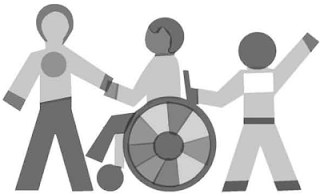Lesson: 1 | Can you live alone?
Lesson: 2 | Knowledge, skills and attitudes
Lesson: 3 | Good Character
Lesson: 4 | Responsibilities
Unit Two: Pastimes
Lesson: 1 | Have you any favourite pastime?
Lesson: 2 | Reading really helps!
Lesson: 3 | Change in pastime
Lesson: 4 | Change in pastimes in Bangladesh
Lesson: 5 | Pastimes vary
Unit Three: Events and Festivals
Lesson: 1 | Mother's Day
Lesson: 2 | May Day
Lesson: 3 | International Mother Language Day - 1
Lesson: 4 | International Mother Language Day - 2
Lesson: 5 | Independence Day
Unit Four: Are We Aware?
Lesson: 1 | The ferry boat
Lesson: 2 | Are we too many?
Lesson: 3 | Our food and shelter
Lesson: 4 | The story of Lipi
Lesson: 5 | Let's become skilled workforce
Unit Five: Nature and environment
Lesson: 1 | The greed of the mighty rivers
Lesson: 2 | Environmental pollution
Lesson: 3 | Man and climate
Lesson: 4 | Putting our fish in hot water
Lesson: 5 | A friend of the Earth
Unit Six: Our Neighbours
Lesson: 1 | Nepal, the land of Everest
Lesson: 2 | Sri Lanka: The pearl of the Indian Ocean
Lesson: 3 | The Maldives
Lesson: 4 | India: Unity in diversity
Lesson: 5 | Bhutan: The land of happiness
Unit Seven: People who stand out
Lesson: 1 | Zainul Abedin, the great artist
Lesson: 2 | The art of silence
Lesson: 3 | Flashback
Lesson: 4 | The beginning
Lesson: 5 | The missionary
Lesson: 6 | Love for humanity
Lesson: 7 | The wizard of Apple
Lesson: 8 | Jobs' childhood
Unit Eight: World heritage
Lesson: 1 | The Shat Gambuj Mosque
Lesson: 2 | The Somapura Mahavihara
Lesson: 3 | The Statue of Liberty
Lesson: 4 | Lake Baikal
Unit Nine: Unconventional jobs
Lesson: 1 | Jobs that people do
Lesson: 2 | Weird jobs around
Lesson: 3 | Floral career
Unit Ten: Dreams
Lesson: 1 | I have a dream
Lesson: 2 | What I dream to be
Lesson: 3 | They had dreams 1
Lesson: 4 | They had dreams 2
Unit Eleven: Renewable energy
Lesson: 1 | Renewable energy sources -1
Lesson: 2 | Renewable energy sources -2
Lesson: 3 | Renewable energy sources -3
Unit Twelve: Roots
Lesson: 1 | My roots
Lesson: 2 | My roots -2
Lesson: 3 | The return of the native
Lesson: 4 | In search of identity
Unit Thirteen: Media and modes of e-communication
Lesson: 1 | Media and modes of e-communication
Lesson: 2 | Social network services
Lesson: 3 | E-learning
Unit Fourteen: Pleasure and purpose
Lesson: 1 | Books
Lesson: 2 | Two Mothers Remembered
Lesson: 3 | The Sands of Dee
Lesson: 4 | Time, You Old Gipsy Man
Lesson: 5 | Stopping by Woods on a Snowy Evening
Lesson: 6 | The Purple Jar-1
Lesson: 7 | The Purple Jar-2
Lesson: 8 | The Purple Jar-3
Lesson: 9 | A Pound of Flesh
Lesson: 10 | The three caskets
Lesson: 11 | The trial
You may also read:







